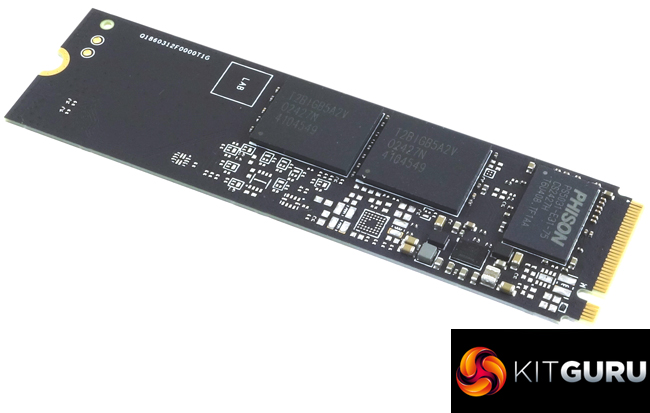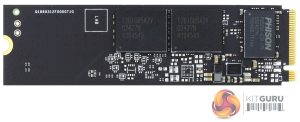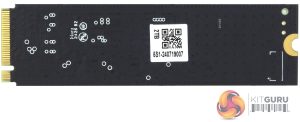After leading the way for Gen 5 SSDs with the all-conquering PS5026-E26, the world's first Gen 5 controller, Phison has brought us their second generation controller, the PS5031-E31T. Aimed at a different market segment than the E26, the E31T should enable manufacturers to deliver Gen 5 products to the mainstream and even notebook markets. Today we take a look at a reference drive from Phison to see what performance we should expect.
Technology has moved on since the E26, so while it was built on a 12nm process, the E31T uses a 7nm process. This has led to better efficiency and an improvement in one of the drawbacks of Gen 5 technology – heat generation. The 7nm process plus the fact the controller is a DRAM-less design (no extra thermals from a DRAM chip to cope with) means that the drives are able to run without having one of those large chunky heatsinks that so many E26 drives come with. Phison claims that for everyday PC use, drives using the E31T don't need a heatsink.
We were sent a reference drive directly by Phison for this preview. The two 1TB and 2TB reference design SSDs combine the E31T with Kioxia BiCS8 3D TLC NAND clocked at 3,600MT/s.
Phison quotes Sequential read/write performance for the 2TB model as up to 10,300MB/s and 8,600MB/s respectively with the 1TB model a little slower at 10,200MB/s and 8,300MB/s for read and writes respectively. Random performance is rated at up to 1,300,000 IOPS for reads and up to 1,500,000 IOPS for writes for both capacities.
Power consumption is rated at 6,100mW for maximum power read/write dropping to 5,900mW for average read / writes.
Physical Specifications:
- Lithography: 7mn.
- Interface: PCIe 5×4.
- NVMe: 2.0.
- DRAM: none, (HMB technology).
- Channels: 4
- NAND support: 8TB 3D TLC / QLC.
 KitGuru KitGuru.net – Tech News | Hardware News | Hardware Reviews | IOS | Mobile | Gaming | Graphics Cards
KitGuru KitGuru.net – Tech News | Hardware News | Hardware Reviews | IOS | Mobile | Gaming | Graphics Cards





